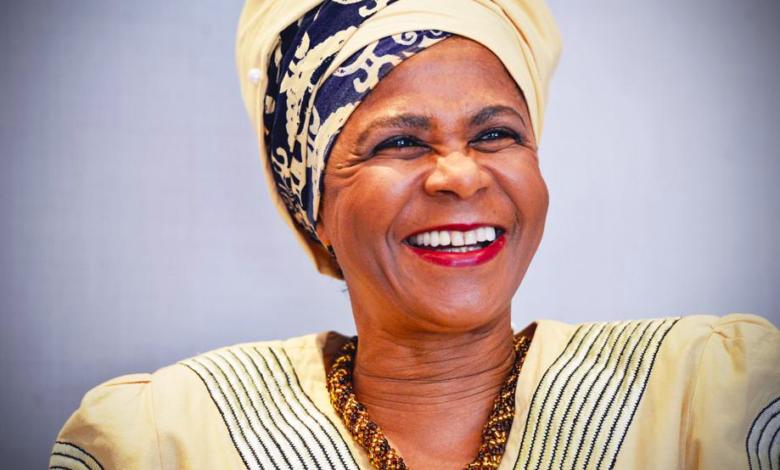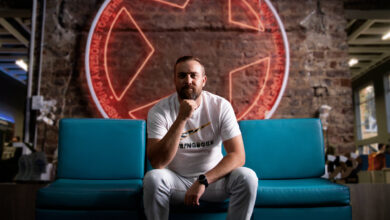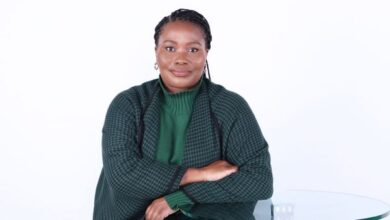Dr Ramphele – “South African small and medium enterprises are largely in survival mode”

“South African small and medium enterprises are largely in survival mode” where some of the sentiments shared by Dr Ramphele at the 13th annual Business in Society Conference where she was a keynote speaker. The COVID-19 crisis offers South Africans opportunities to tackle the unfinished agenda of transforming our society into a more equitable, resilient and prosperous democracy that promotes the wellbeing of all people and our planet. This call to action was made by academic, businesswoman and political thinker Dr Mamphela Ramphele, cofounder of ReimagineSA. Dr Ramphele was the opening speaker at the 13th annual Trialogue Business in Society Conference on 13th October, where she discussed how corporates could play a leading role in strengthening socio-political and economic conditions.
Dr Ramphele said the greatest leaders in extraordinary times in world history are not necessarily those who had demonstrated their capacity to lead in normal times.
“On the contrary, leaders who rise to the demands of extraordinary crisis tend to be those willing to take the risk to be creative, inventive and courageous. Such leaders succeed because they dare to break from the known to the unknown, from the familiar to the unfamiliar, from traditional to non-traditional ways, to open up new pathways to more promising futures.”
Dr Ramphele focused on three key issues in her virtual address: Leadership in challenging times, the process of emerging from the COVID-19 crisis, and education as a platform for innovation and resilience.
Leadership in challenging times
Racism, sexism and inequity, “that have reared their ugly heads with a vengeance over the past few years”, are warning signs that unless we address these legacy issues, future generations will be hampered by the burden of these ghosts.
Corporate South Africa has the opportunity to lead the charge in this healing work as businesses return to face-to-face encounters in the workplace, said Dr Ramphele.
“There is an imperative to initiate processes of deep conversation in safe spaces between leaders, managers and workers about how to work together to create a new normal in the work space. Healing conversations have to go beyond the wounds of the past to embrace the fragilities in work, family, community and public life that COVID-19 has laid bare.”
Corporate South Africa can also invest in embedding civic education in personal development programmes for staff at all levels. “Critical, responsible and accountable citizenship is a key success factor of stable societies across the world. We now know that where there is trust between people in the workplace, productivity, creativity and innovation thrive.”
Leading the emergence from post-COVID emergency
Humanity is consuming 1,7 times the resources we should and the world is approaching a tipping point on climate change. Protecting the future of human civilisation and the wellbeing of our planet will require dramatic interventions.
These include human and economic transformation, with a radical overhaul of corporate governance, finance, policy-making and energy systems, towards greater transparency and accountability. We need to address three obstacles:
· Business that is shareholder-driven instead of stakeholder-driven;
· Finance used in inadequate and inappropriate ways; and
· Governance based on outdated economic thinking and faulty assumptions.
Companies and enterprises need to listen to trade unions and workers’ collectives, community groups, consumer advocates and others in the rest of society. Corporate governance must reflect stakeholders’ needs instead of shareholders’ whims.
Government assistance to business should be less about subsidies, guarantees and bailouts, and more about building partnerships. Strict requirements should be attached to any corporate or state-owned enterprise bailouts so that taxpayers’ money is used productively and generates long-term public value.
“We need to re-imagine and rebuild governance systems from the local, provincial and national levels and to strengthen critical citizenship to ensure that we, the people, relentlessly demand accountability in a responsible manner within the ambit of the law.
“Destruction of public property in the name of public anger and rage must end. Citizen accountability must rest on taking ownership of these public assets and needs to be complemented by severe punishment for those who continue to be destructive.”
Dr Ramphele advocated robust plans for a transition to renewable energy, with timelines towards zero emissions. “We have much to gain by kick-starting our economy through accelerating investments in enterprises that promote regenerative economic production systems.”
South African small and medium enterprises are largely in survival mode. We require nimble and integrative approaches that collapse the bureaucracy of existing organisations into a high-impact platform to identify and significantly invest financial and business skills support, she said.
We also need to move away from GDP as a measure of progress. “GDP is an inadequate measure given that it largely accounts for, and values, only consumption. GDP does not take into account the ecological costs in the production of goods and services that have a major impact on the wellbeing of people and our planet.”
Public services should be reimagined to ensure high quality, sustainable solutions. “The pernicious tender system that has turned public servants into administrators of interminable tender processes needs to be ended.”
Social and physical infrastructure development has to be driven by skilled personnel, with capable leaders at local, provincial and national levels to ensure that they can negotiate value for money for all public-private partnerships. “We urgently need to transform and revitalise infrastructure to kick-start our moribund economy. Well-planned and well-executed infrastructure development programmes are the only guarantor of training opportunities for the millions of young unemployed people to become artisans and maintenance workers.”
Education
Our education system is the best-resourced in Africa, yet by all measures is among the worst performers globally. In the 2018-2019 fiscal year, 16,5% of government expenditure went to basic education; overall, 20% of our national resources are spent on basic and higher education annually, yet we have “a hopelessly underperforming system that has failed generations of young people since 1994.”
Teachers who had entered the profession by default because of the lack of alternative careers in the past, should be offered the opportunity to retire early. “It would be much cheaper to let go of all default teachers, 50 years and older, with attractive packages. We would then be able to hire young people from our higher education and training system, who are assessed to have the aptitude and commitment to become 21st century teachers. “In-service training of scores of young people would enable us to re-imagine and build a 21st century education system. The good news is that there are models of success of this form of leadership, for example the LEAP schools for maths and science. They have demonstrated that excellence is attainable.”
Dr Ramphele concluded: “COVID-19 has created an urgent imperative to transform our inequitable society into one governed by the values of ubuntu – that would help us understand that there is no ‘I’ without ‘we’. An ubuntu value-based society, with citizens that are liberated from the impositions of inferiority and superiority complexes, is urgently needed. Such a society would be driven by healthy relationships with self, family, community and wider society. Leadership that is self-liberated would emerge to lead the rebuilding of our broken public institutions in line with ubuntu values and the prescriptions of our Constitution.”




